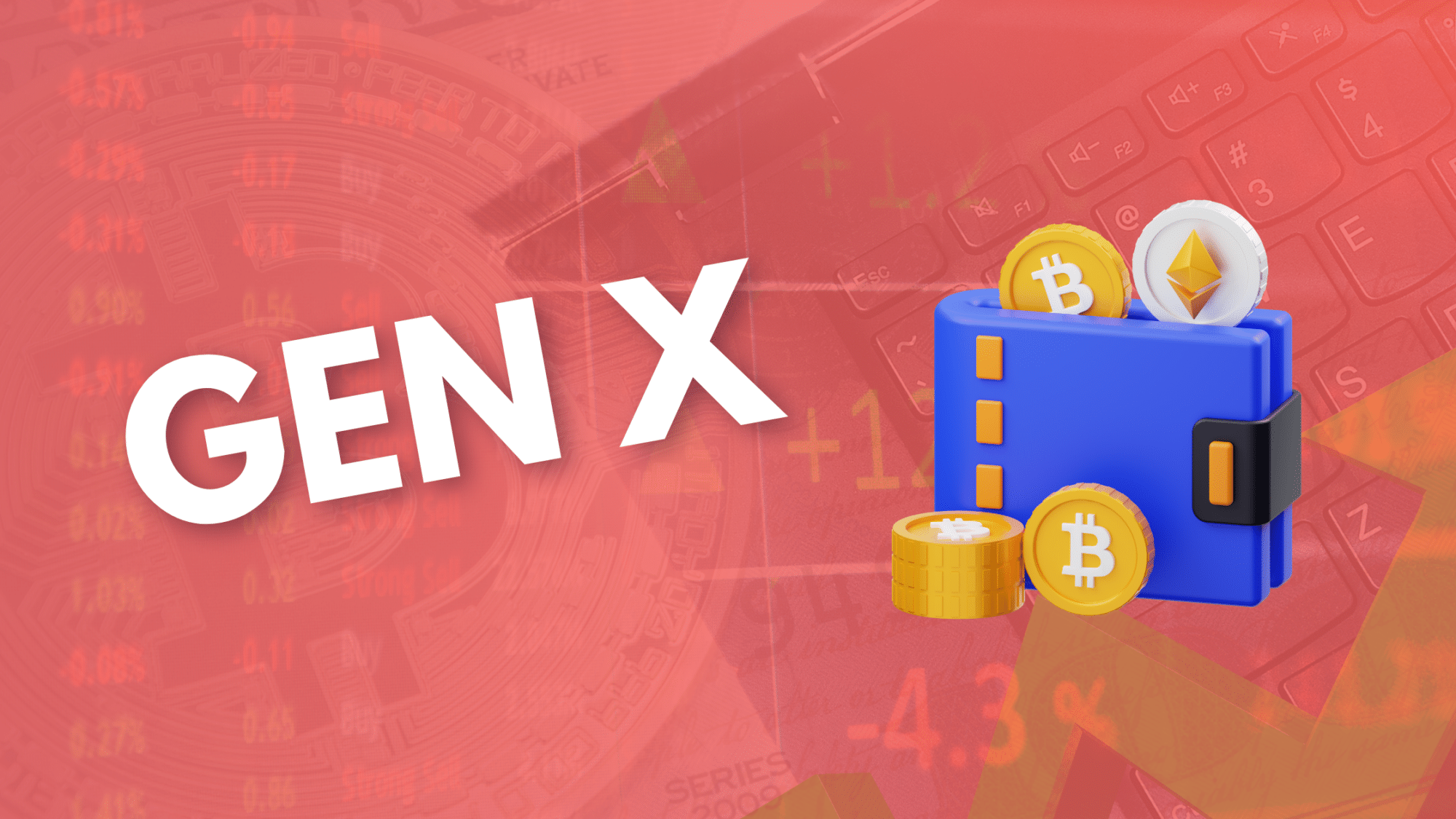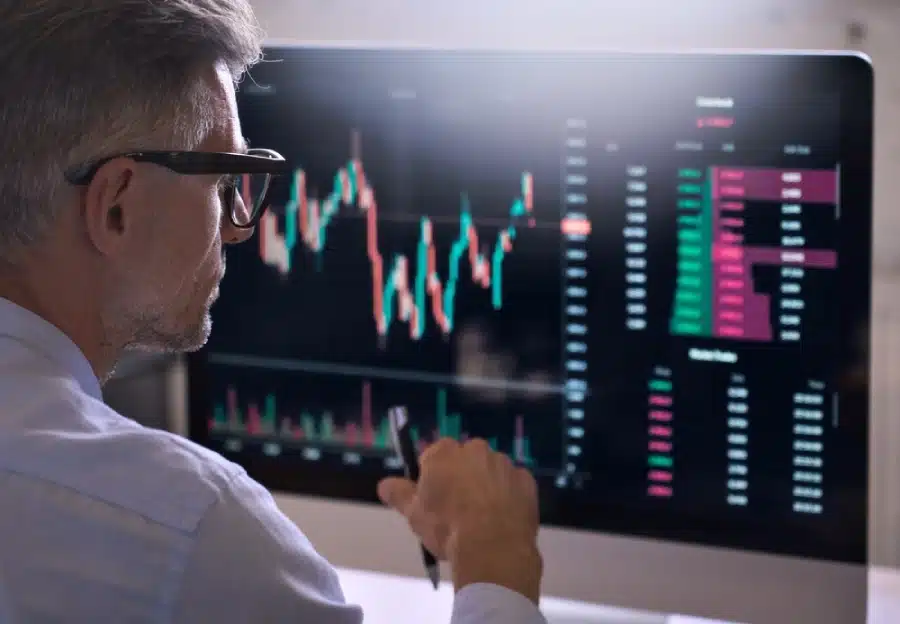The oldest members of Gen X are hitting 60 next year, but for many, retirement isn’t in the cards anytime soon.
Gen X, born between 1965 and 1980, started their careers just as the American work landscape was shifting dramatically. Companies moved away from traditional pensions that guaranteed steady income after years of service, replacing them with 401(k) plans that put the burden of retirement savings on employees.

Some Gen Xers faced serious setbacks during the 2008 financial crisis, while others are still dealing with student debt. Many have children living at home well into adulthood, and they’re also taking care of aging parents. With Social Security’s future uncertain, few feel secure about their financial prospects later in life.
In many ways, Gen X is financially worse off than the baby boomers before them. According to inflation-adjusted data from the Federal Reserve, the median household net worth of Gen Xers aged 45 to 54 was about $250,000 in 2022—roughly 7% lower than what baby boomers had at the same age in 2007. Gen X is the only generation to see a drop in median wealth over the past 15 years.
With about 65 million members, Gen X is sometimes called the “forgotten generation,” squeezed between the larger and more vocal baby boomer and millennial generations. They’re also known as the “latchkey generation,” often coming home to an empty house as kids. Recently, Goldman Sachs Asset Management dubbed them the “‘401(k) experiment’ generation.”
For decades, employers supported loyal workers in retirement through traditional pensions with guaranteed payouts for life. But with the advent of 401(k) plans, the responsibility shifted to individuals, and Gen X bore the brunt of this transition.
The 401(k) was never intended to be the primary way Americans saved for retirement. It started as a tax-free way for executives to defer bonuses or stock options, but soon, human resources executives and economists saw its potential for rank-and-file employees.
By the mid-1980s, more private sector workers were participating in 401(k)-style defined-contribution plans than in traditional defined-benefit pension plans. Today, private pensions are rare.
When Gen X entered the workforce, the 401(k) was still a new idea. Features like automatic enrollment and automatic contribution increases didn’t become common until later.
Other private retirement savings tools were also introduced during Gen X’s working years. The individual retirement account (IRA), a tax-deferred investment vehicle, was authorized in 1974, and the Roth IRA, funded with post-tax money but tax-free when withdrawn, was established in 1997.
In 2023, the median balance for Gen Xers aged 45 to 54 in defined-contribution retirement plans at Vanguard Group was about $60,000—well below the target many financial experts recommend, which is roughly six times one’s salary saved for retirement by age 50.
Keeping money invested in the stock market didn’t always seem worth it, especially after market crashes like the dot-com bubble. For some Gen Xers, the 2008 financial crisis dealt a blow that took years to recover from.
Take one of our clients, for example, who allowed us to tell her story but withhold her name. In 2007, she was at the height of her career as a managing partner at a law firm in California. But when the housing market collapsed, so did her company. She couldn’t afford her rent and ended up staying with her significant other, sometimes sleeping on the beach or in her car.
She eventually relocated to Utah and spent more than two years searching for a new job. She went back to school, earning an online bachelor’s degree in education. Now, she’s teaching in two different schools.
As she approaches her 60s, she is trying to track down money she contributed to various 401(k)s earlier in her career. She didn’t roll over her balances when switching jobs, leaving her accounts scattered across different plan providers.
She is also dealing with nearly $90,000 in student debt from a for-profit associate’s degree program she completed in her 20s, which ballooned from $27,000 due to interest.
More than a quarter of Gen X-led U.S. households aged 45 to 54 had education loans in 2022, compared with about 15% of baby boomers at the same age in 2007, according to Fed data.
Skyrocketing tuition, high rents, and other inflationary pressures on Gen Z are also affecting Gen X. Many Gen Xers have spent tens of thousands of dollars on their children’s college education. Young adults are increasingly living with their parents or relying on them for financial support well into their 20s and 30s.
Meanwhile, many Gen Xers are caring for aging parents who are living longer than previous generations.
The youngest members of Gen X, now in their mid-40s, still have time to boost their savings before retirement. Tyler Bond, research director at the National Institute on Retirement Security, speculates that there might be a significant difference in retirement experiences between the older and younger members of Gen X.
Cryptocurrency Might Save Gen X
Investing in cryptocurrency for retirement savings, particularly for Generation X (Gen X), can be considered from several angles:
- High Growth Potential: Cryptocurrencies like Bitcoin have shown significant growth over the years, with some investors experiencing substantial returns. For Gen X, who might feel they need to catch up on retirement savings due to various economic factors or personal circumstances, the potential for high returns could be appealing. If cryptocurrencies continue to gain acceptance and value, early investment could lead to significant wealth accumulation over time.
- Diversification: Traditional retirement portfolios often consist of stocks, bonds, and perhaps real estate. Cryptocurrencies offer an alternative asset class that doesn’t necessarily move in lockstep with traditional markets. This diversification can potentially reduce overall portfolio risk and enhance returns, which might be particularly beneficial for those looking to make up for lost time in saving for retirement.
- Inflation Hedge: Cryptocurrencies, especially Bitcoin, are often touted as a hedge against inflation. Given the monetary policies of many countries that involve quantitative easing, which can lead to currency devaluation, holding assets like Bitcoin might protect purchasing power over the long term. This aspect could be crucial for Gen X, who might be nearing retirement when inflation could significantly impact their fixed income.
- Technological Adoption: Gen X is at a unique intersection of understanding technology but also having enough time before retirement to benefit from long-term trends in technology adoption. Cryptocurrencies are at the forefront of financial technology, and their adoption could lead to increased value as more businesses and institutions integrate blockchain technologies into their operations.
- Innovation and Utility: Beyond just being an investment, cryptocurrencies and blockchain technology promise to revolutionize various sectors like finance, supply chains, and more. Investing in crypto could be seen as betting on the future of technology, which might resonate with Gen X’s experience with the rise of the internet and subsequent technologies.
- Lower Entry Barriers: Unlike real estate or starting a business, which might require significant capital, cryptocurrencies can be bought with relatively small amounts. This accessibility allows for gradual investment, which might suit those looking to slowly build up their retirement funds without large initial investments.
For Gen Xers facing an uncertain financial future, cryptocurrency offers a potential lifeline. With its high growth potential and diversification benefits, it could be the game-changer this generation needs for a secure retirement. Platforms like My Digital Money make it easy to start investing in crypto, empowering you to take control of your financial future.
With My Digital Money, you’re empowered to take control of your financial future. Start your self-directed crypto IRA or rollover your 401(k) into a crypto IRA today.




